The process and information needed for booking an international flight versus a domestic one are similar in many ways.
But it does require a bit of preparation. And failing to do so will most likely result in losing your tickets and the money you spend on them. And the whole trip itself.
International air travel is more strict compared to domestic due to entering one or more new countries.
I’ve flown internationally over a hundred times, and in this article, we’ll go through all the preparation and particular information needed to book your international flight (step-by-step).
📖 Table of Contents
First Part: Documents Needed to Book an International Flight
While you’re often able to book an international flight without anything else than your passport (number), you might be declined during check-in or boarding if you’re missing any of the other documents down below.
1. Passport
First things first.
You won’t come far without a passport.
Also notice, many countries require one that’s valid for at least 6 months upon arrival.
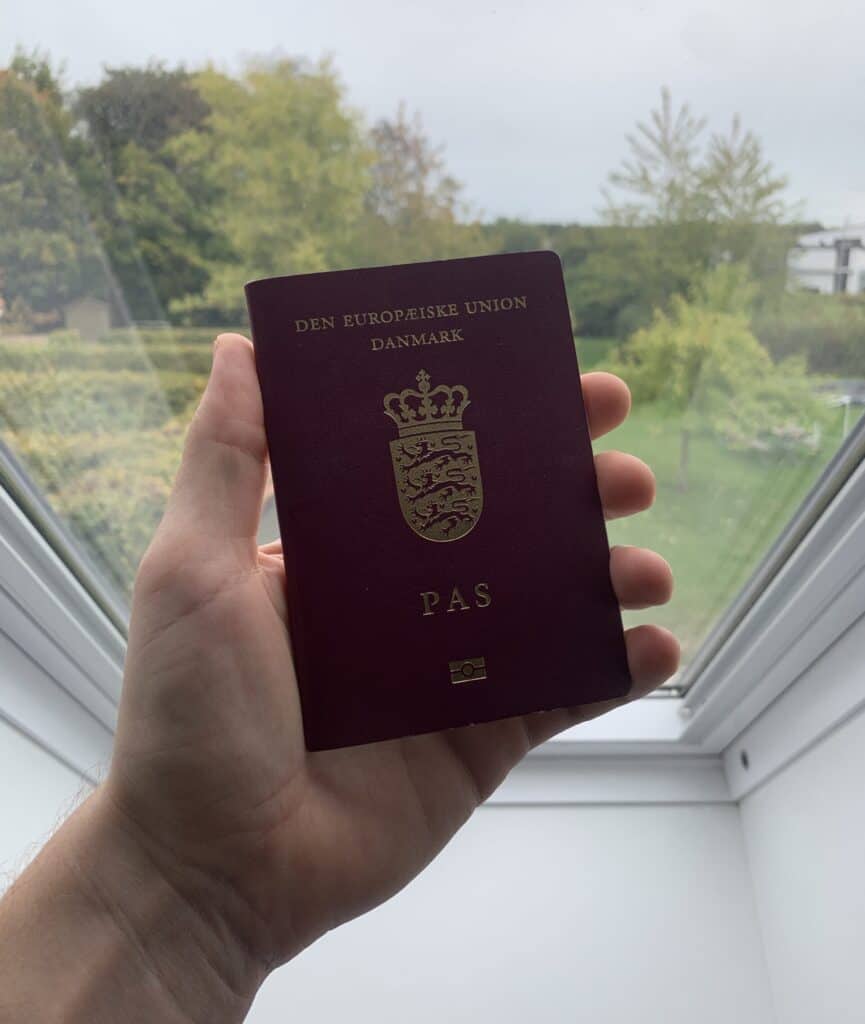
So if you currently don’t have a passport, or it’s about to expire, I recommend ordering a new one as soon as possible.
In the US it can take up to 10 weeks for it to get shipped. That’s excluded shipping time (see current processing times).
You can pay a fee to receive it faster if you don’t have time, but why not save some dough if you can?
2. Visa(s)
Once you get your passport, the next thing is obtaining a visa if your destination requires it.
Many popular countries offer visas on arrival, but not all do. And even if that’s the case, it’s not always enough if you’re planning to visit a specific country for an extended period.
If you’re in the US, you can look up the specific visa requirements and more for most countries on Travel.state.gov (see image down below):
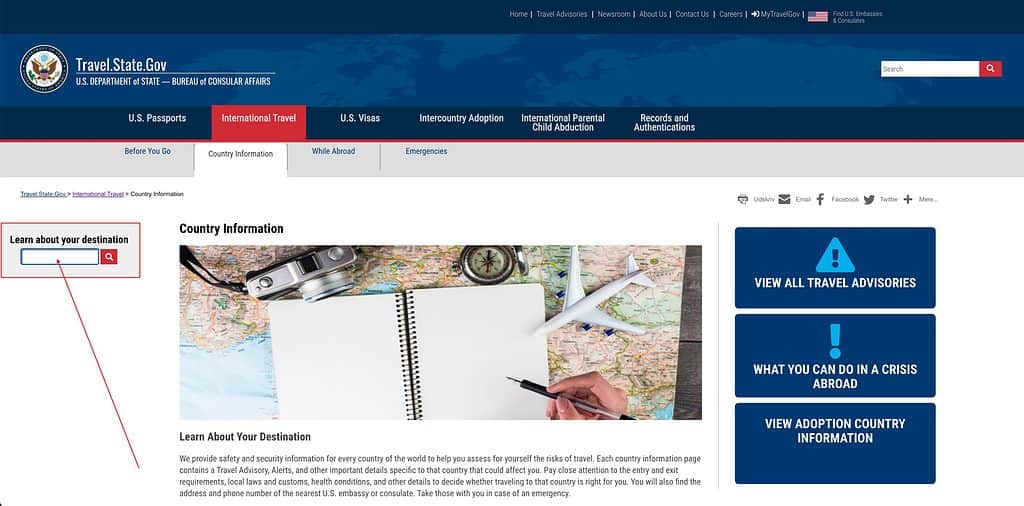
Also, do notice that obtaining a visa takes various times based on the country. So to have time in your favor, it’s also a good idea to start this process as soon as possible.
Official travel websites in other countries:
📌 TIP: If you prefer help to obtain your visa as smoothly as possible, popular services such as Onlinevisa.com can do just that.
3. Travel Insurance
While you can travel without travel insurance I highly advise you not to.
I’ve (un)fortunately had the ability to use my different travel insurances more times than I can count. Saving me over +$10,000 to this day. And the peace of mind on the way.
This includes everything from video calls with doctors at home to multiple-day hospitalizations. All are included without having to pay any excess fees.
Examples of covered incidences over the years:
- Hospitalized with a dangerous infection due to an infected blister
- Dislocated shoulder after falling in a shower
- Quarantined after catching Covid-19
- Bitten by a stray dog
- Ear- and eye infections
- Lost luggage (2 days)
- And the list goes on…
I don’t share this to scare you – keep in mind this is over many years of traveling 🙂
But hopefully, it can emphasize the importance of investing in travel insurance.
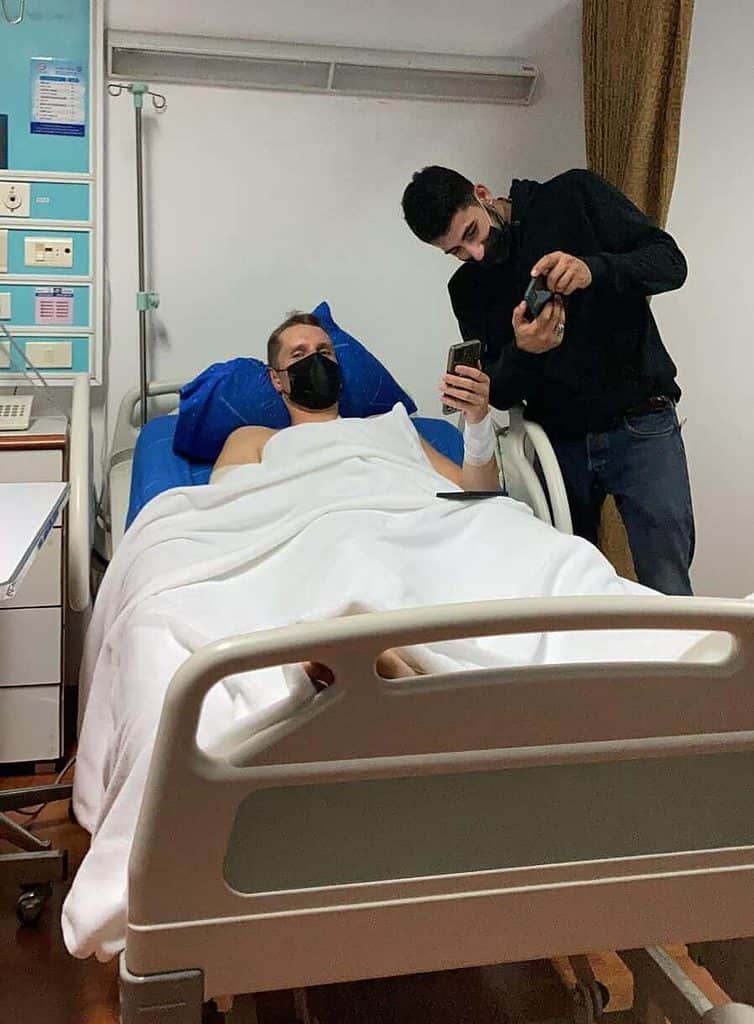
I’ve never had any issues reclaiming at the three different insurances I’ve used.
And the insurance I recommend is Genki (they’re amazing) 🤩
Now that we’re at that, I also recommend paying extra to waive the excess fee if you have the option and budget.
First of all, it’s then free to use the insurance. But when you don’t have the excess fee to worry about, you’re also more likely to visit the doctor even if you should.
I’ve met too many – myself included, that’s been postponing stuff only to avoid the hassle of going. And having to pay for it on top of that doesn’t make it better.
📌 TIP: Don't forget checking the recommended vaccines of your destination(s) too.
4. Other Important Documents
International Driver’s License (IDP)
If you’re intending on renting a vehicle in the country of your destination, you might need to acquire an international driver’s license (IDP).
As with many other things it varies from country to country, so you should check up on this according to your destination.
Medical Prescriptions (In English)
Also if you’re on medication, you might need to carry a prescription too, so you don’t risk any trouble on the way.
And always carry your medicine in the original packaging.

Though do notice, that just because your medicine is legal at home, doesn’t guarantee it’s legal at your destination (including transit).
So make sure to check up on this too.
📌 TIP: If you're going on a longer trip then it's not a bad idea to bring a few physical profile photos with you. Then you'll always have some at your disposal for issuing or extending visas on the go.
5. Print and Take Photos of Important Documents
This includes copies of your:
- Passport
- Visa
- Flight booking details
- Insurance papers
- Accommodation confirmation
- Medical prescriptions (in English)
- Etc.
While you’ll probably do just fine keeping photos of these, it’s safer to bring physical copies with you too.
Just make sure to keep them in your carry-on luggage, so they’re with you at all times.
📌 TIP: I also recommend taking a photo of the baggage slip you'll receive when checking in your luggage.
6. Prohibited Items at Your Destination
Another thing is making sure you don’t bring any items that are prohibited in the country of your destination.

Examples of items prohibited in some countries:
- E-cigarettes*
- Foods
- Medication
- Knives
- Pornography*
- Sex toys*
*In Thailand despite being a popular destination, these three items are illegal.
Bringing prohibited items into a country knowingly or not can in worse cases result in a departure or prison time. Though confiscation and fines are mostly common.
But it as with everything else always depends on the country of your destination.
I recommend you do some research or ask your airline in case you have any doubts about the items you intend on bringing.
This also applies if you want to bring what could be considered an abnormal amount of a single item.
7. Recommended Carry-on Items for Longer Flights
Having the right items close to you makes a big difference on long international flights.
And it’s good to have some extra items to live off in case you’re check-in luggage is delayed.
I usually pack these items in my carry-on baggage:
- Books (or a Kindle)
- Chargers
- Documents
- Earplugs
- Electronics and other fragile items
- Extra credit card(s)
- Extra underwear, socks, and tops
- Headphones (with AUX cable)
- Laptop
- Medicines
- Melatonin
- Night mask and pillow (or a piece of thick clothing as a pillow)
- Snacks
- Toothbrush and toothpaste (under 3.4 oz/100 ml)
- Valuables such as money or jewelry
📌 TIP: Melatonin is your best friend when it comes to avoiding jetlag on flights crossing time zones. Especially oversea international flights. It's recommended to take one tablet 1 hour before bedtime according to your destination's timezone.
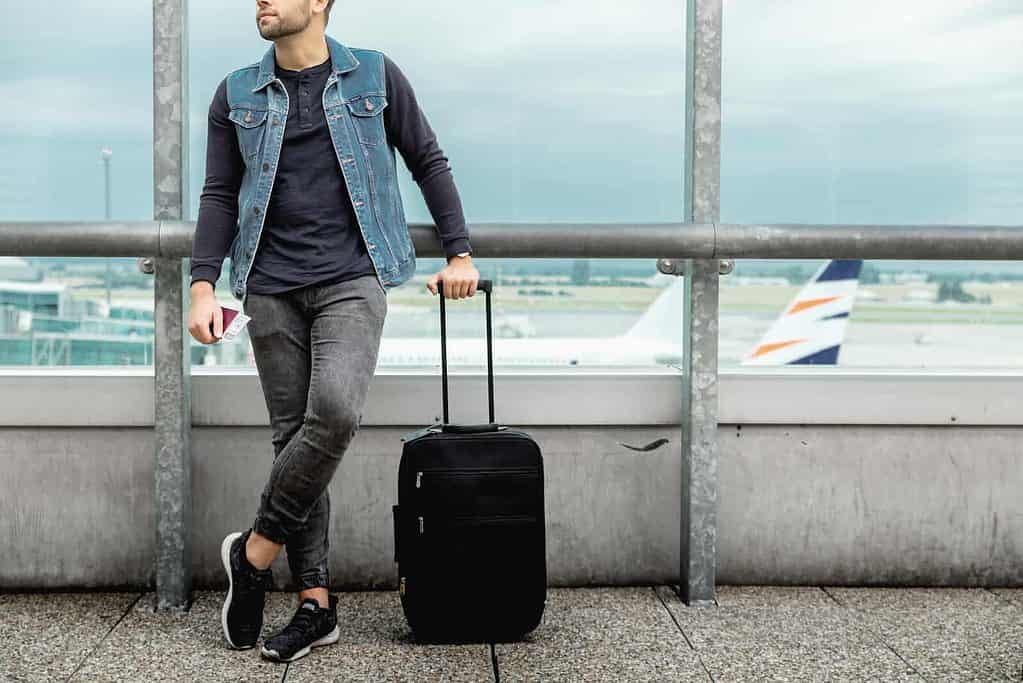
Second Part: How to Book an International Flight
8. Confirming the Destinations Airport Code
Traveling to destinations with a single airport is pretty straightforward.
But if you’re going to a place with several airports, then make sure it’s the right one by checking the airport code.
For example, London (England) has an impressive total of 6 airports. Which doesn’t make it impossible to pick the wrong one in case you thought you were just “flying to London”.
Though for most people it would make sense just to pick the one with the best route from their destination (in terms of price and duration).
9. Personal Information
Let’s get a bit practical for a second.
Examples of personal information needed to book an international flight:
- First and last name (as in your passport)
- Date of birth
- Address
- Mobile number
As mentioned in the beginning, it’s not much different from booking a domestic flight. It’s mostly the preparation that is.
📌 TIP: In case you don't want to book a return ticket yet, do notice that some countries require proof of a ticket out of the country before your visa expires. If you already know the next destination after the first one, but without knowing the dates, you can solve this by booking a flexible ticket where changing the departure date are free (excluding a possible difference in price). Or if you don't know where you're going, you have two legit options. One is buying the cheapest ticket out of the country - no matter where to, as long as it's within the expiration of your visa. Or two, buy a fully-refundable flight ticket which you can get refunded as soon as you've entered the country.
10. Food
Ordering food in advance is a good idea when flying internationally.
The long flight also means you’ll be hungry at some point.
And if you don’t pre-order food you’re not guaranteed a proper meal and must settle for snacks if you’re unlucky.
Though as with many other things, this depends on the airline.

With the risk of sounding spoiled, I had to learn this the hard way.
Once on a flight from Copenhagen to Bangkok, I thought I would have access to all sorts of foods without pre-ordering. Just to learn that they only had crisps, chocolate, and sweets.
11. Seat Reservation
The higher likeliness of sleeping on an international flight can make it a good investment to secure a window or aisle seat which is more comfortable.
Or you can always take the chance and ask for relocation of your seat when checking in. If you decide to do so keep in mind that the chances are higher the earlier you do so.
If you decide to reserve one while booking your ticket, I recommend checking your specific flight on Seatguru using the flight number or day and time of departure.
Here you can see specific facts and reviews on the different seats, so it’s easier for you to decide on which one to go for.
📌 TIP: If you're not a fan of turbulence consider the wing seats where you're less likely to feel the impact of it.
12. Consider Time Zones When Booking Accommodation
If you’re crossing a lot of time zones, be aware of the actual date and time you’ll arrive at your destination when booking your accommodation.
There’s nothing worse after a long trip than figuring out you arrived on the day of your check-out and not check-in.
Third Part: On the Day of Your Flight
13. Consider Tea Instead of Coffee for Easier Sleep
If you have trouble sleeping on planes, and melatonin, as mentioned earlier, isn’t strong enough for you, then there’s still hope.
Quitting coffee on the day of traveling might seem insane to some, but from my experience, it’s the most effective way on supporting the ability to sleep on a plane.
It’s not rocket science – you’re taking advantage of a caffeine deficit, which your brain will hate you for at first while may generating the symptoms to emphasize it.

But if you can stand the temptation, chances are you’d be happy once you’re trying to get a proper night’s sleep before landing at your destination.
To make it easier, I don’t recommend not drinking anything.
Replacing it with tea is a good alternative, and you might even get surprised how much of the satisfaction only comes from the habit of brewing and drinking a hot cup of “something”.
Though if you’re driving to the airport, you might don’t want to put yourself at risk depending on how dependent you are on coffee.
14. Leave for the Airport at Good Time
One of the other differences between international and domestic flights is the recommended amount of hours when it comes to arriving at the airport before a flight.
The usual recommendations are 3 hours for international flights. Which makes it 1 more hour than most other flights.
While it is a lot, different factors come into play hence why many airlines follow these guidelines.
If you’re curious about it, I’ve previously written an article on why you have to be at the airport 3 hours early for international flights.
Here I mention 11 causes that can delay you before your flight. I guess some of them might surprise you.
Though it does depend on the airline and the airport, therefore I also recommend checking up on the recommendations on this for your specific departure.
Details Needed to Book a Flight (Summary):
- Departure airport
- Arrival airport
- Departure date
- Return date (if booking a round-trip ticket)
- Number of passengers (adults, children, infants)
- Class of travel (economy, business, first)
- Preferred airline (if applicable)
- Seating preferences (aisle or window, front or back of the plane, etc.)
- Any special requests (e.g. wheelchair assistance, dietary restrictions)
- Frequent flyer membership numbers or loyalty program details
- Any promotional or discount codes (if you have one)
- Additional baggage or baggage allowance requests
- Payment details (credit card, debit card, etc.)
- Passport details (for international travel)
- Visa requirements (depending on your nationality and the country you are visiting)
- Contact details (name, email, phone number)
Do You Need a Passport Number to Book International Flight?
It depends on the airline. While you don’t necessarily need a passport number during booking, you’ll need it when checking in.
This is because airlines are required to collect certain passport information and share it with relevant authorities at your destination (and sometimes your country of departure). This is done for security and immigration purposes.
Additional information may include the expiration date and the country of issuance of your passport.
How to Save Up to 90% On Your Next International Flight
Before you book your next flight, I highly recommend reading my comprehensive guide on how to save money on flight tickets (and secure the best flights).
With over 9 years of travel experience and booking 300+ flights, I’ve distilled my findings into a 19-step checklist.
By following this guide, you’ll not only gain practical knowledge on finding and securing the best flights but also potentially save thousands of dollars in travel costs.
Including how to:
- Maximize savings by looking up the best time to book flights
- Set up price alerts if the price of your tickets drops and save even more
- Earn cashback and save by using my recommended booking platforms
- Save money on extras like baggage fees through smart planning
- Discover budget-friendly hacks for your flight day and save on seat reservations and food.


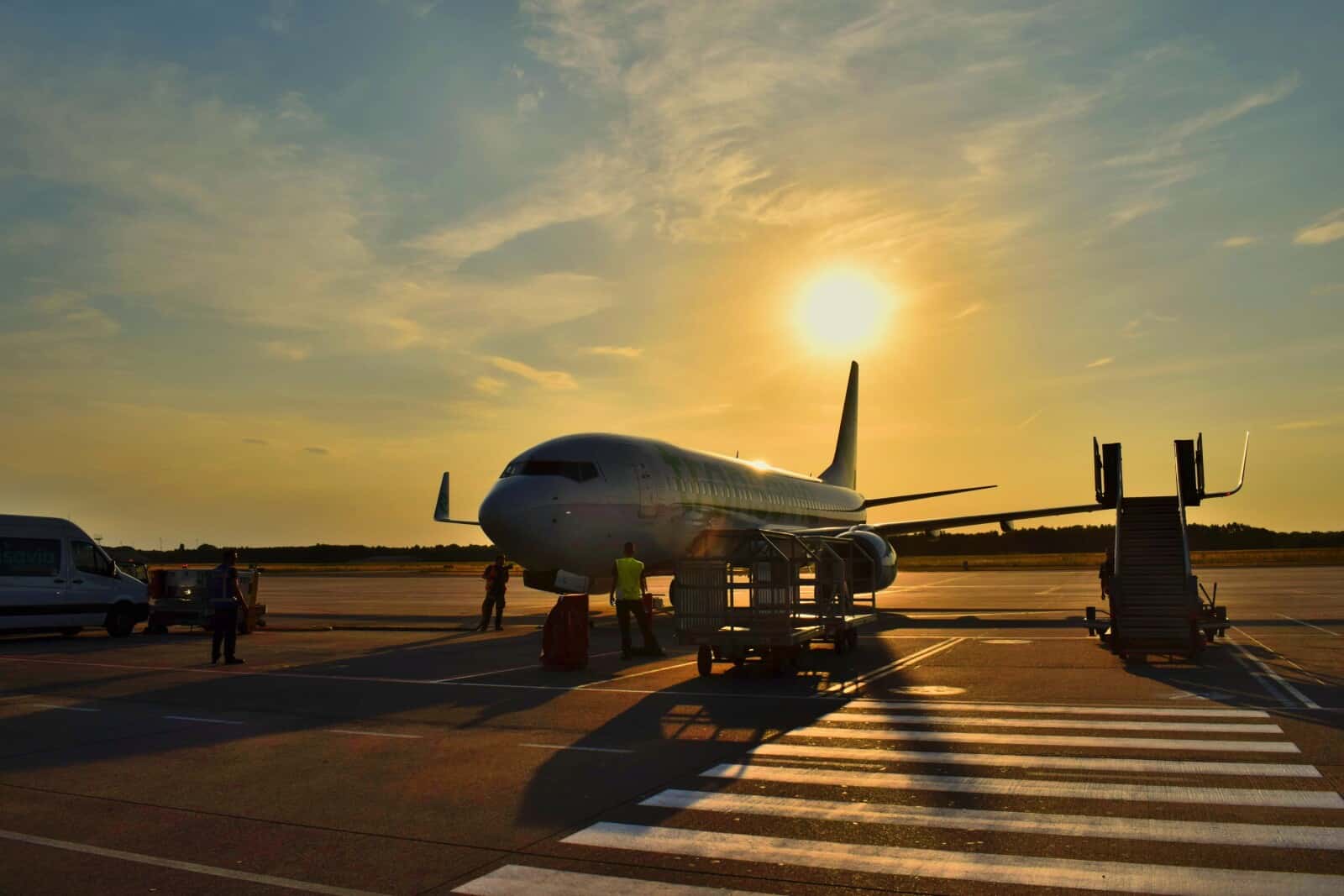


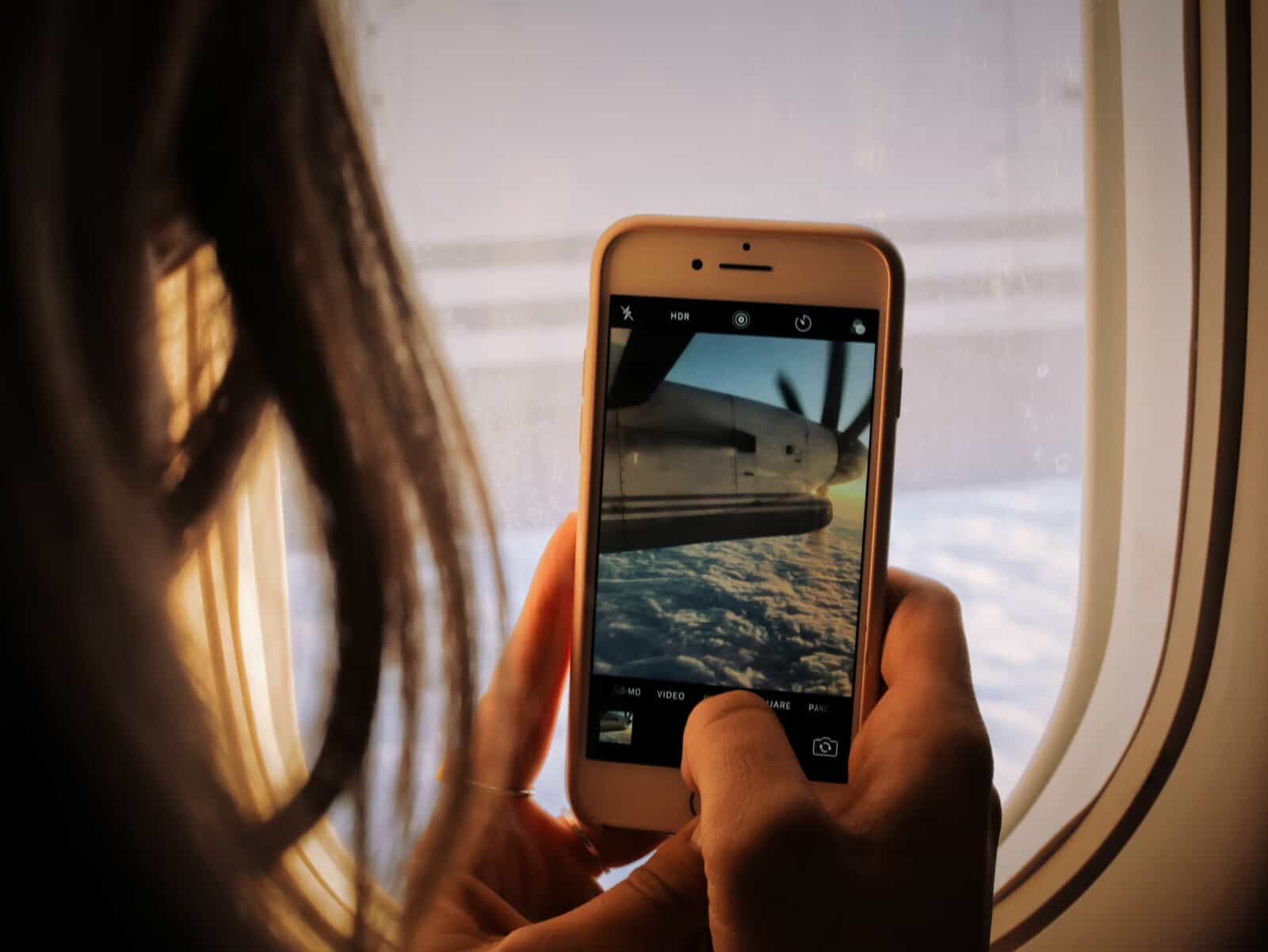
Leave a reply